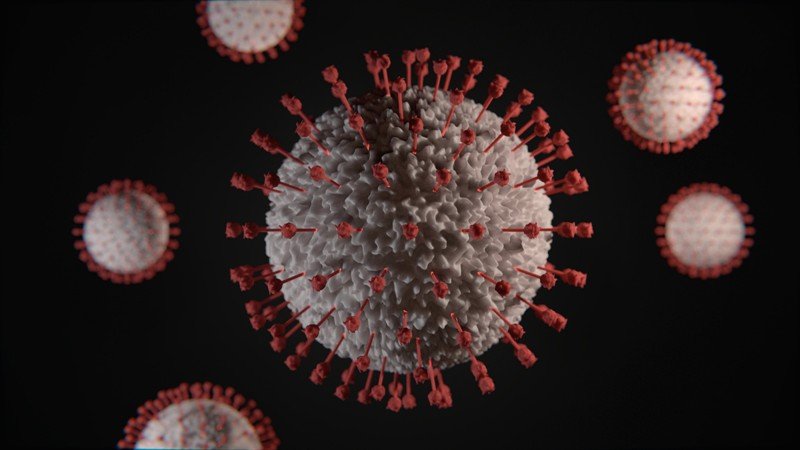
Useful Resources With Access To Accurate Information About Covid-19 Virus
Information about the corona virus is quickly changing with fresh reported cases every day. With such a vast amount of new information, and false information, it can be difficult to stay updated and distinguish true from false. Here is a list of some of the resources that offer accurate and updated information about the COVID-19 global pandemic.
The Centers For Disease Control And Prevention
The most elaborate and close-to-the-source material on all things related to the coronavirus is the centers for disease control and prevention. They are the leading public healthcare institute and are part of the Department of health and human services. The CDC’s website contains links to information such as symptoms, how to efficiently disinfect, and helpful resources for businesses, schools and travellers and fresh information on restrictions and travel warnings. There is a running list as well with the most recent official coronavirus updates on their landing page and a map that displays the reported cases in the United States according to State.
World Health Organization

The World Health Organization is a worldwide public health company of the United Nations. It pronounced the COVID-19 outbreak as a worldwide pandemic. Like the website of the CDC, the WHO landing page contains links to guidelines on protecting yourself from getting the virus and information on the virus itself, and video and situation reports of news conferences. The map of the COVID-19 information by country can also be found on the WHO’s page together with a running count of worldwide cases and deaths.
Johns Hopkins University
The Johns Hopkins University’s centre for systems sciences and engineering established a live map of worldwide COVID-19 active cases, deaths, total past cases, and recoveries. The map is continuously updated and breaks down the figures of particular locations once you click on the area of interest shown on the map. The list of confirmed cases per country is also included, from the most cases to the least, therefore you can easily evaluate where your country ranks in comparison to other areas all over the world.
United States Department Of State
The United States Department of State’s coronavirus landing page offers invaluable information to travelers with fast links to information that include, travel-related quarantine guidelines, travel advisories and a list of proclamations made by President Donald Trump about the virus. Check this post about how Blockchain Technology enters the medical scene due to global pandemic. Travelers can locate the State Department guidelines for individuals returning to the United States from China, Europe and cruise ships and information for US students that travel abroad.
The website for the American Red Cross offers information about health needs during the COVID-19 virus outbreak, like blood donation, and the best methods for prevention. This site also has accessible information on individuals at risk, talks about how to prepare for quarantine in your household and what to do if you suspect you have contracted the disease.
Harvard Medical School
Harvard medical school’s health publishing centre generated a landing page that offers guidelines on general questions about the virus and about protecting yourself from contracting the virus, as well as general information on how the virus compares to other diseases. They also provide links to podcasts containing information about coronavirus including one featuring a Harvard infectious disease specialist and another that offers stress management tips during the outbreak from a Harvard psychologist.
Tips For Educating Your Kids About The CoronaVirus

Information about the COVID-19 virus seems to be spreading quicker than the virus itself, and children and teens might have questions about what they might have heard. Here are some useful tips on how you can educate your children about the Coronavirus.
1. Finding Out Exactly What They Know
The most essential step would be to first establish what they’ve heard about the virus. Before you begin, ask your children what they know so far and find out if they have any questions. The CDC recommends limiting screen time to help regulate how much exposure they have to corona virus information which is false or not age appropriate.
2. Remain Calm And Make Sure You’re Available
It’s essential that children know their worries are valid and that they have someone that listens to their fears and answer any questions they may have. The CDC also recommends reassuring your children they are healthy and safe and that adults are doing their best to ensure that it stays that way. It’s important to be vigilant about what you’re saying and doing around your kids when it comes to COVID-19. Your actions and words can either decrease or increase anxiety levels in your children.
3. Remain Honest
First ensure the information at hand is accurate and obtained from reliable resources like the CDC. Use correct information to make sure you’re making promises that you can keep. For example, do not tell kids they can’t get the disease because you don’t know that for certain. Instead, explain to them that the doctors established that kids who do contract the virus won’t get very sick and that help is available. However, it’s essential for them to understand that just because they don’t feel well, it necessarily means they have the virus. If they are feeling sick, remind them that they can trust you to obtain the help they require, whether it’s a common cold, the flu or the COVID-19 virus.
4. Letting Them Know What They Can Do To Help Prevent Catching The Virus
Hand washing is one of the predominant tools in preventing the spread of COVID-19, therefore ensure your kids are doing it regularly and thoroughly. Children must wash their hands with water and soap after coughing, blowing their nose, going to the bathroom or sneezing.
Proper hand washing lasts at least twenty seconds. If soap and water is not accessible, teach them to utilize hand sanitizer. However, ensure that young children are supervised to prevent them from swallowing it. Remind kids to steer clear from those who exhibit symptoms, i.e., shortness of breath, cough, fever, etc. With that being said, ensure to prevent language that can blame or stigmatize others. It’s important for them to realize that viruses are something that can infect people of all races and ages.




